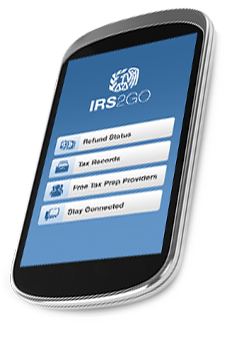While most of us are trying to thaw out from a very cold winter season, presented here is a reminder to file your 1120S business tax return by March 17th and a recap of some of the common scams being encountered by the IRS. There is also a description of a new mobile app from the IRS and a general interest article outlining a new currency phenomena in the news called bitcoin.
As always, should you know of someone who may benefit from this information please feel free to forward this newsletter to them. | ||||||||||||||||||||
IRS Announces Annual Scams
Each year the IRS announces "Dirty Dozen Tax Scams" they encounter most frequently regarding frivolous tax arguments and fraud. Here are five of the scams that impact most taxpayers.
| ||||||||||||||||||||
New IRS2GO Mobile App Announced
"Where's my Refund?" This popular feature on the IRS web site (www.irs.gov) allows taxpayers to see the status of their refund after filing their income tax return.
Now with a recent announcement, the IRS is making their Refund Status service available on the 2014 version of their Mobile App called IRS2GO.
What can you do on the new IRS2GO?
A note of caution
Remember, the IRS is also experiencing record levels of identity theft. If you plan on using the IRS2GO Mobile App, take the same security precautions you would if you were logging into your bank account. This includes, but is not limited to, using your personal internet network and not a public network.To download the IRS2GO app with an iPhone or iTouch go to your iTunes app store. Android users can visit Google Play to download their version of the app. | ||||||||||||||||||||
Are You Doing Your Bit?
Understanding the Bitcoin phenomena
Recently a number of news services have been discussing problems at a web site called Mt.Gox. The service provided at Mt. Gox is as a Bitcoin exchange. So what is this and why should you care?
 Bitcoin defined Bitcoin defined
Why bitcoins? Who uses it?
Why bitcoin? When you consider the issues with overspending by many governments, there is potential risk in the devaluing of currencies they supply. By limiting supply, the bitcoin concept can theoretically provide a more predictable means of establishing value to purchase goods and services across all boarders.Another major benefit of bitcoins is that it solves some of the problems of foreign exchange. By having a currency that is not tied to a country, you do not have to worry about converting your currency into the currency of the foreign market where you wish to purchase your goods or service. Bitcoin transactions are also much cheaper for merchants than credit card transactions and these transactions provide more identity protection than credit card transactions. Is anyone using it? Much of the value of bitcoins is established in exchange centers that buy and sell the currency. However, a growing number of traditional merchants are beginning to accept bitcoins as legal digital tender. Bitcoins can be used at overstock.com and it is being considered by large internet retailers like e-bay and others.
What is happening now?
Recently one of the largest exchanges that allow trading of bitcoins has had a security breach. As much as 730,000 bitcoins appear to have been stolen. At an estimated value of $450 to $550 per coin this amounts to a very large cyber theft. Because of this, many users of the digital coin are beginning to pull back on enabling their use. This includes a recent announcement by Apple to shut off their bitcoin App. Many countries like Russia and China, who centrally control their currency, have outlawed the use of digital currencies like bitcoins.Even worse, just like any other currency, when faith in the product falters so does its value. Those who own bitcoins in their digital wallets are seeing their value falling dramatically.
Does bitcoin have a future? What you need to know.
| ||||||||||||||||||||
Missing the Flow-through Deadline
The penalty that does not fit the crime
Action to take
| ||||||||||||||||||||
As always, should you have any questions or concerns regarding your situation please feel free to call.
| ||||||||||||||||||||
Saturday, March 1, 2014
March 2014 Letter
Subscribe to:
Comments (Atom)




